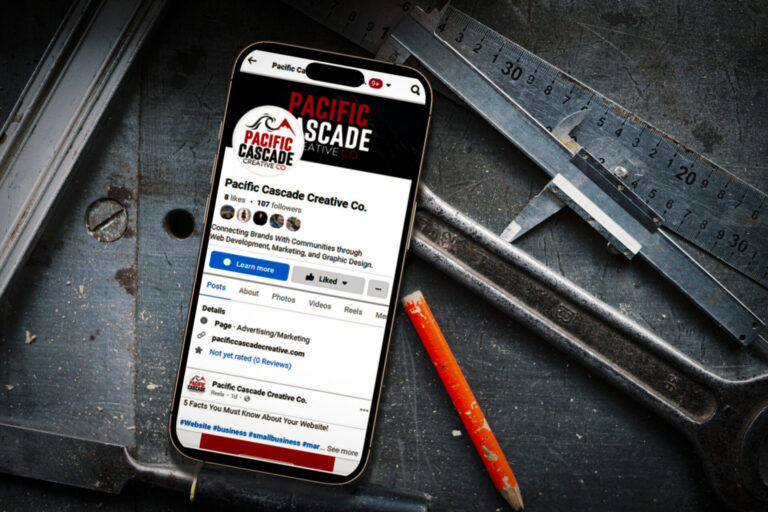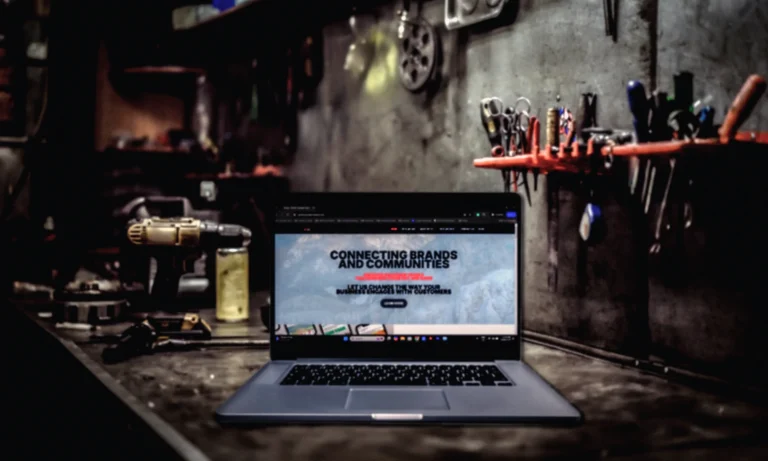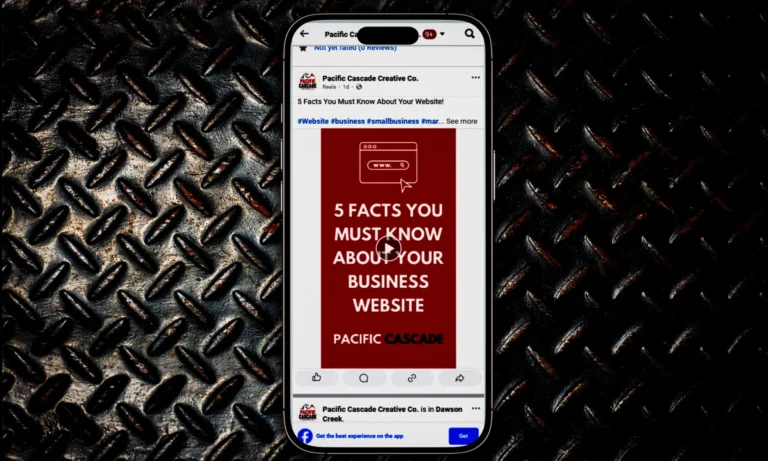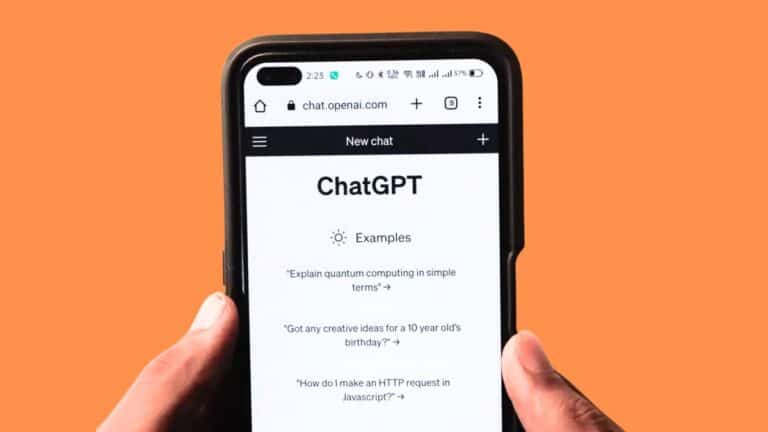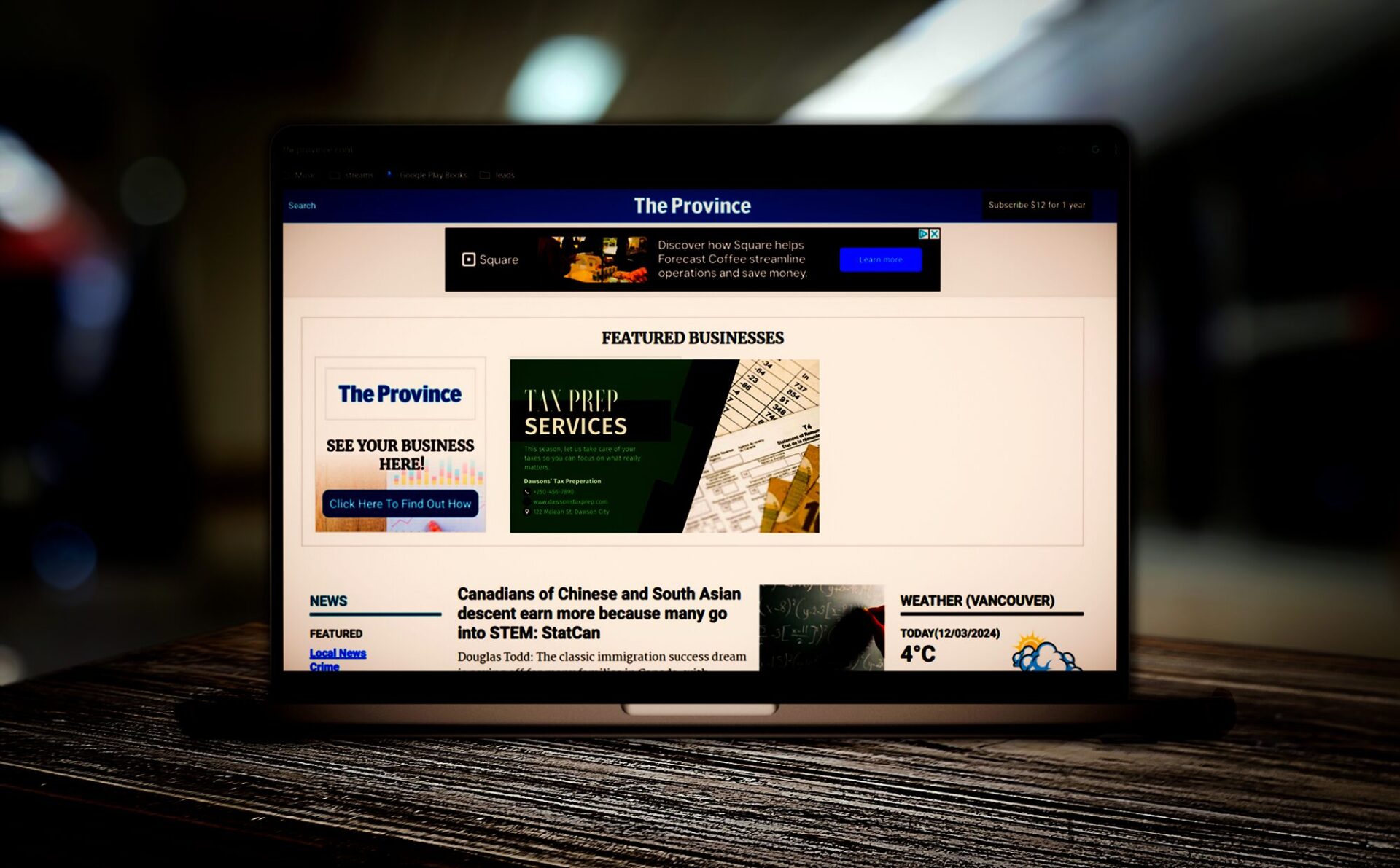
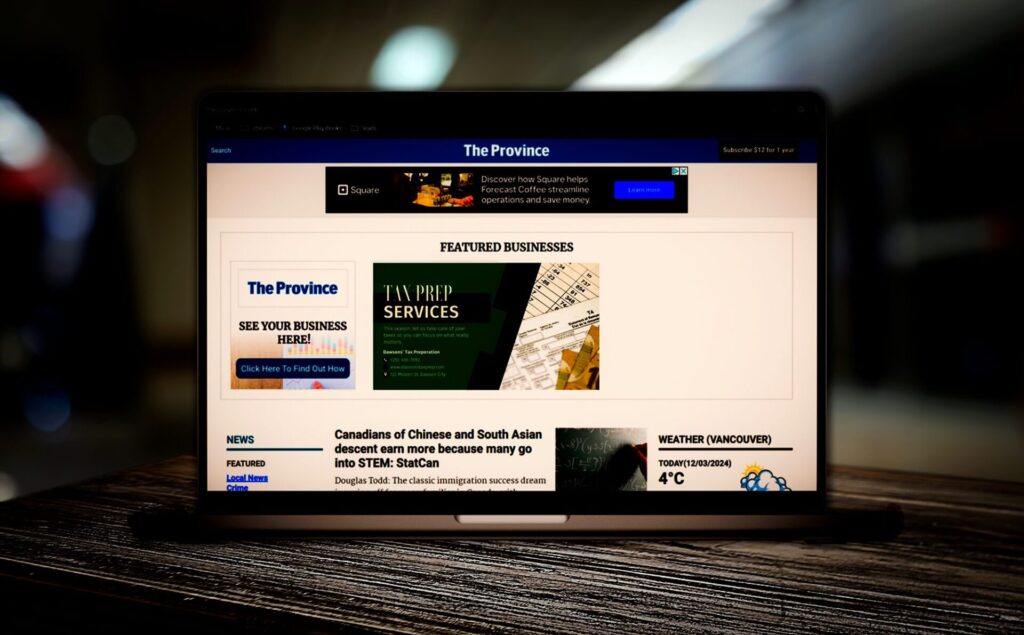
Pay Per Click Ads: Everything You Need to Know
The reality is that Pay Per Click Ads are one of, if not the most powerful and effective marketing tools available to businesses today. However, any business owner who has tried to run a Pay Per Click Ads campaign online knows that Pay-Per-Click (PPC) advertising can feel like a maze, especially when you’re just getting started. It doesn’t help that prominent platforms like Google purposefully make things confusing to get you to spend more money. After all, google advertising is big business and its main goal is to generate revenue for shareholders. This leads many Businesses to waste money and resources experimenting to find out what works with their Pay Per Click Ads.
While hiring experts like Pacific Cascade Creative will maximize your resources and return on investment, sometimes you just want to do things yourself. This guide will help you do just that, as it dives deep into the most common questions about digital advertising, giving you clear, actionable answers and steps to help you master this marketing powerhouse.
Using Pay Per Click Ads allows businesses to quickly gain visibility online and reach their target audience effectively. By leveraging the power of Pay Per Click Ads, you can see immediate results as your ads appear in front of potential customers actively searching for your products or services.
Understanding the Basics of PPC Ads
What are Pay Per Click Ads?
Pay-per-click ads are a form of digital advertising where businesses pay a fee each time someone clicks on their ad. These ads are intended to drive traffic to a website, landing page, or other online destination. They are commonly used on platforms like Google Ads, Facebook Ads, and other search engines or social media sites. PPC ads operate on a bidding system, where advertisers bid on specific keywords or audience criteria, competing to display their ads prominently.
For example, in search engine advertising, ads are shown at the top of search results, marked as sponsored. One of the key advantages of this is its cost-efficiency: you only pay for actual engagement, ensuring your advertising dollars are spent reaching people who have shown interest in your product or service. This form of advertising also offers precise targeting options, enabling businesses to reach their ideal audience based on factors like location, demographics, and interests.
How Does P.P.C. Advertising Work?
Pay-per-click advertising works through a bidding and auction system that helps advertisers display their ads to a targeted audience. Advertisers create campaigns on platforms like Google Ads or social media, choosing keywords or audience criteria such as location, demographics, and interests. They also set a maximum bid, the highest amount they’re willing to pay for each click. When a user searches for a relevant term or matches the targeting criteria, an auction determines which ads will be shown.
The auction considers both the advertiser’s bid amount and the ad’s quality, including its relevance, expected click-through rate, and landing page experience. The combination of these factors forms the Ad Rank, which determines the ad’s placement. Advertisers only pay when someone clicks on their ad, and the cost per click (CPC) depends on the competition and Ad Rank. Once the ad is live, advertisers monitor key performance metrics like impressions, clicks, and conversions to evaluate and refine their campaigns. This approach allows for precise targeting, budget control, and measurable results, making it a highly effective advertising strategy.
What Is The Difference Between A Click And A Conversion
A click and a conversion are both key metrics in digital marketing, but they represent very different stages of the customer journey. It is important to understand the difference between them to align your campaigns with your business goals.
A click occurs when a user interacts with your ad or call-to-action button. It indicates that the user has shown interest in your offer or content enough to take the first step, whether that’s clicking on a paid search ad, a display banner, or a social media link. However, a click alone doesn’t guarantee any meaningful business outcome; it’s simply the action of engaging with the ad or link.
A conversion, on the other hand, is when a user takes the desired action that aligns with your business goals. This includes making a purchase, signing up for a newsletter, downloading an eBook, filling out a contact form, or any other action that drives value for your business.
Conversions are typically more meaningful than clicks because they directly reflect a successful interaction with your ad that leads to business growth. While clicks are important for driving traffic, conversions are the ultimate goal, as they indicate the effectiveness of your marketing efforts in turning prospects into customers or leads. Understanding both metrics helps businesses measure campaign performance and adjust strategies to maximize ROI.
Understanding how to optimize your Pay Per Click Ads can significantly enhance your campaign’s performance, ensuring that you get the best possible ROI.
With Pay Per Click Ads, you can accurately target your audience, improve your website traffic, and effectively increase your sales and leads.
The versatility of Pay Per Click Ads means they can be tailored to suit a variety of marketing objectives, making them a crucial part of any digital marketing strategy.
As you embark on your journey with Pay Per Click Ads, remember to focus on continuous improvement and optimization for the best results.
Why Should Businesses Use Pay Per Click Ads
Businesses should use pay-per-click (PPC) advertising because it offers a highly targeted, cost-effective way to drive traffic and generate leads or sales. Unlike traditional advertising, digital advertising ensures businesses only pay for actual engagement, meaning their budget is spent on users who are actively interested in their products or services. Digital ads can appear in high-visibility locations, such as at the top of search engine results pages or in strategically targeted social media feeds, giving businesses immediate exposure to their ideal audience. This visibility can significantly increase brand awareness and help businesses stay competitive in crowded markets.
Another reason to use online advertising is the precision it offers in targeting the right audience. Platforms like Google Ads and Facebook allow businesses to define their audience based on location, demographics, interests, search behaviors, and more. This means businesses can tailor their campaigns to specific customer segments, ensuring their message reaches the people most likely to convert. Additionally, these ad campaigns provide real-time data, allowing businesses to track clicks, impressions, and conversions. This data helps measure the success of campaigns and make informed adjustments to improve performance. Whether businesses want to boost website traffic, generate leads, or promote a special offer, online ads provide the flexibility, control, and measurable results needed to achieve those goals effectively.
Getting Started with PPC Ads
What Do I Need to Start a Pay Per Click Campaign?
Your investment in Pay Per Click Ads can yield significant returns if managed properly and strategically.
To begin a pay per click ads campaign , you’ll need:
- A clear goal (e.g., brand awareness, lead generation, sales).
- A budget that aligns with your goals.
- A platform (Google Ads, Bing Ads, or social media platforms).
- Knowledge of your target audience.
- A landing page optimized for conversions.
It’s essential to stay updated on trends and strategies in Pay Per Click Ads to maintain a competitive edge.
Which PPC Platform Is Right for Me?
- Google Ads: Ideal for search-based intent (e.g., “buy running shoes”).
- Facebook Ads: Perfect for awareness and engagement with visual content.
- LinkedIn Ads: Great for B2B businesses targeting professionals.
Choose the pay per click ads platform that aligns best with your audience and campaign goals.
Which Type Of Ad Is Most Effective?
Google search ads are often considered the most effective because they target users at the moment they are actively searching for specific products or services, indicating a high level of intent. When someone searches on Google, they’re typically looking for a solution to a problem, and if your ad appears alongside relevant search results, it directly addresses their needs. This makes search ads highly efficient at driving conversions, as they attract users who are already engaged and ready to act, whether that means making a purchase, signing up, or contacting a business.
In contrast, display network and video ads are more passive forms of advertising. Display ads appear across various websites, often while the user is simply browsing or engaging with content unrelated to your brand, which can lead to lower click-through rates and less immediate action. Video ads, while powerful for brand awareness, are also less likely to convert on the spot compared to search ads, as users may not be actively seeking your product or service. Search ads, with their focus on intent-driven keywords, allow businesses to capture highly relevant traffic, leading to better ROI and a more direct path to conversion.
This is why Google search ads are often viewed as the most effective form of advertising for businesses aiming to achieve quick and measurable results.
How Much Should I Spend on Pay Per Click Ads?
How much your business should spend on ads depends on its specific goals, industry, and competition. There’s no one-size-fits-all budget, but a good starting point is to decide the monetary value of a new lead or customer or your Cost Per Acquisition. For example, if a business makes $500 in profit from a new customer, spending $100 to acquire them through ads may be worthwhile. Businesses should also consider their industry’s average cost-per-click (CPC). Some industries, like legal and financial services, tend to have higher CPCs due to competition, while others, like local services, can see lower costs. Allocating a budget that reflects the potential return on investment (ROI) is essential for success.
A typical campaign budget should include room for testing and optimization. Your business can start with a smaller daily or monthly budget to evaluate which keywords, ads, and audience segments work best for you. As campaigns yield data, the budget can be adjusted to focus on high-performing areas while reducing spend on things that aren’t working. Google Ads, for instance, allows advertisers to control daily spending limits, ensuring costs don’t spiral beyond what the business can handle. A good rule of thumb is to invest enough to gather meaningful data, usually at least $1,000 per month for small businesses, although flexibility is key.
Over time, businesses can scale their budgets as they refine campaigns and see consistent results, making this strategy a sustainable and effective marketing investment.
Do I Need Professional Help for P.P.C. Ads?
Managing ad campaigns effectively requires a solid understanding of platforms, strategies, and performance metrics. These are skills that most businesses do not have the time or reason to develop. Our professionals can optimize your campaigns by utilizing their expertise in selecting perfect keywords, targeting precise audiences, and creating intriguing ad copy to maximize your return on investment (ROI). Without expert guidance, businesses run the risk of wasting time, overspending on ads that won’t work or missing opportunities to reach their ideal customers. Our professionals ensure your ad budget is spent wisely, focusing on delivering results instead of experimenting on your dollar.
At Pacific Cascade Creative, we specialize in managing ad campaigns that drive measurable results for businesses across North America. Our team takes a hands-on approach, using data-driven strategies to create and optimize campaigns tailored to your goals. Whether you’re looking to boost brand visibility, generate leads, or increase sales, we handle every detail—from keyword research and audience targeting to ad creation and performance tracking. By partnering with us, you’ll save time, reduce wasted ad spend, and gain peace of mind knowing your campaigns are in expert hands.
Additionally, we provide clear, actionable reports so you can see exactly how your campaigns are performing and how they contribute to your bottom line. With our expertise, you won’t just run ads—you’ll run campaigns designed to grow your business. If you’re ready to take the guesswork out of advertising and achieve real results, let’s talk about how we can help you succeed.
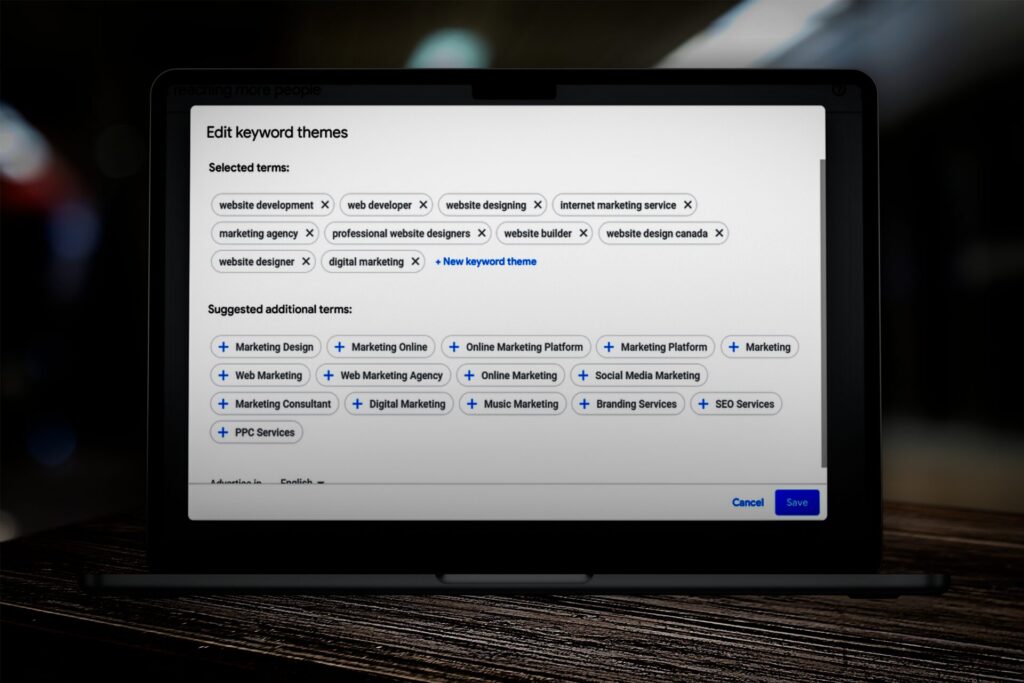
Choosing the Right Keywords and Target Audience
How Do I Pick the Right Keywords for my PPC Ads?
Choosing the right keywords for your ads is crucial to reaching the right audience and maximizing results. Start by understanding your target audience and the words or phrases they’re likely to use when searching for your products or services. Focus on keyword intent—whether users are ready to make a purchase, researching options, or looking for a specific business—and tailor your keywords accordingly. Tools like Google Keyword Planner, SEMrush, and Ahrefs can help you identify high-value keywords by analyzing search volume, competition, and cost-per-click (CPC). Long-tail keywords, which are more specific phrases like “affordable website design for small businesses,” often have lower competition and attract highly qualified leads.
It’s also important to analyze your competitors to identify opportunities they might be missing. Once your campaign is live, regularly monitor performance metrics like click-through rates (CTR) and conversions to refine your keyword strategy. Adding negative keywords, such as “free” or “cheap” if you offer premium services, can prevent irrelevant traffic and ensure your budget is spent on attracting the right customers. By following these steps, you can create a highly targeted and cost-effective keyword strategy. For expert help in conducting detailed keyword research and optimizing your ad campaigns, Pacific Cascade Creative is ready to guide you every step of the way.
- Use tools like Google Keyword Planner or SEMRush.
- Focus on long-tail keywords for higher intent (e.g., “buy waterproof hiking boots” vs. “hiking boots”).
- Prioritize keywords with high search volume but moderate competition.
What Are Negative Keywords, and Why Are They Important?
Negative keywords are an essential part of any successful ad campaign because they help you exclude irrelevant searches, ensuring your budget is spent attracting the right audience. For example, if you sell premium products, adding negative keywords like “free” or “cheap” prevents your ads from showing up in searches that don’t align with your offerings.
This not only reduces wasted ad spend but also improves your click-through rates (CTR) and ad relevance, which can lead to a higher quality score and lower cost-per-click (CPC). By filtering out traffic that is unlikely to convert, negative keywords help you focus on reaching users who are genuinely interested in your products or services. Including them in your campaign is a simple yet powerful way to increase efficiency and improve your overall return on investment (ROI).
How Do I Target the Right People with my Pay Per Click Ads
Targeting the right people with your pay-per-click (PPC) ads requires a clear understanding of your ideal audience and leveraging the advanced targeting options available on platforms like Google Ads and social media networks. Start by defining your target audience based on factors like demographics, location, interests, and behaviors. For example, if you’re a local business, you can restrict your ads to appear only to users within a specific geographic area. Use keywords that align with the search intent of your ideal customers, focusing on terms they are likely to use when looking for your products or services.
Additionally, many platforms allow you to refine targeting further by specifying age, income, or even life events. Retargeting campaigns can also help you reconnect with users who have previously visited your website or interacted with your ads. By combining precise audience targeting with relevant keywords and compelling ad content, you can ensure your PPC ads reach the right people and drive higher-quality traffic to your site.
Should I Use Branded Keywords?
Using branded keywords in your PPC campaigns can be a valuable strategy, especially if you have an established brand or if you want to protect your brand from competitors who might target your name. Branded keywords—those that include your business name or specific products—can lead to highly relevant traffic, as users searching for your brand are likely already familiar with you or have a high intent to convert. Bidding on branded keywords ensures your ads appear at the top of search results, even if a competitor bids on the same keywords. This can help you maintain visibility, control your online reputation, and improve click-through rates.
However, if your brand is less established or in the early stages, it might not be as critical to target branded keywords immediately. In that case, focusing on non-branded, industry-related terms can be more beneficial for expanding reach and attracting new customers. Ultimately, incorporating branded keywords into your PPC strategy can strengthen your position in the marketplace, protect your brand, and increase your visibility among existing and potential customers.
Crafting High-Performing Ads
What Makes Great Pay-Per-Click Ads?
A great PPC ad is one that immediately captures the attention of your target audience, offers clear value, and motivates action. Key components of a great ad include compelling headlines, concise and relevant descriptions, and a strong call to action (CTA). The headline should be attention-grabbing and contain relevant keywords that align with the user’s search intent. The ad description should expand on the offer, highlighting benefits and key features that resonate with the audience’s needs.
A clear CTA, such as “Shop Now,” “Get a Free Quote,” or “Learn More,” tells users exactly what to do next and encourages them to click on the ad. Additionally, aligning the ad’s message with the corresponding landing page is crucial for providing a seamless user experience and improving conversion rates. When these elements are combined effectively, your ad will not only stand out but also engage users in a way that drives meaningful action.
- Headline: Grab attention with relevance (e.g., “Affordable HVAC Services in Your Area”).
- Description: Highlight benefits and a clear call to action (e.g., “Schedule your free consultation today!”).
- Visuals (for display ads): Use high-quality images or videos that resonate with your audience.
What Types of Ads Are Available?
- Search Ads: Text-based ads appearing in search results.
- Display Ads: Visual ads shown on partner websites.
- Shopping Ads: Product-specific ads for e-commerce.
- Video Ads: Engaging ads on platforms like YouTube.
How Do I Make My Ads Stand Out?
- Use emotional triggers (e.g., urgency or exclusivity).
- Highlight USPs (Unique Selling Propositions).
- Include reviews or testimonials when possible.
Tracking and Improving Campaign Performance
What Does A Great PPC Ad Campaign Consist of?
An outstanding PPC ad campaign consists of more than just a well-crafted ad—it involves a comprehensive strategy that includes thorough keyword research, precise audience targeting, continuous optimization, and performance tracking. To create a successful campaign, start by selecting the right keywords that match the search intent of your target audience. From there, use advanced targeting options to ensure your ads are shown to the right people, whether based on location, demographics, or interests. A great campaign also involves regular monitoring and adjusting to maximize performance.
This includes testing different ad variations, adjusting bids, and refining keywords based on data-driven insights. Conversion tracking and clear metrics such as click-through rates (CTR), cost-per-click (CPC), and return on ad spend (ROAS) are essential for measuring success and determining which strategies are delivering the best results. By continuously optimizing your campaign and staying aligned with your business goals, you can drive more traffic, increase conversions, and achieve a higher ROI.
What Metrics Should I Track?
- CTR (Click-Through Rate): Measures ad engagement.
- CPA (Cost Per Acquisition): How much it costs to convert a lead.
- ROAS (Return on Ad Spend): Your revenue versus your PPC spend.
How Do I Know If My Ads Are Working?
Set SMART goals (Specific, Measurable, Achievable, Relevant, Time-bound) and use tracking tools like Google Analytics to monitor performance.
What Should I Do If My Ads Aren’t Converting?
If your ads aren’t converting, it’s important to take a methodical approach to identify and resolve the issue. Start by reviewing your targeting settings to ensure you’re reaching the right audience. Narrow down your keywords to make sure they align with the search intent of potential customers, and consider adding negative keywords to avoid irrelevant traffic. Analyze the ad copy and landing page experience—your ad should clearly match the message on your landing page to provide a seamless user experience. If the offer or CTA isn’t compelling enough, consider revising it to make it more enticing or clearer.
Additionally, check your bidding strategy and budget to ensure you’re competitive enough in your industry. It’s also crucial to track conversion metrics and A/B test different ad variations, such as headlines or visuals, to find the most effective combinations. By systematically optimizing these elements, you can improve your ad’s performance and increase conversions over time.
- Improve your landing page (faster load time, clearer CTA).
- Refine your audience targeting.
- Adjust your ad copy to match user intent.
How Can I Lower My Cost Per Click (CPC)?
To lower your cost-per-click (CPC), focus on improving the quality and relevance of your ads and landing pages. Start by refining your keyword selection, targeting more specific long-tail keywords, which typically have lower competition and CPC. Ensure that your ads are highly relevant to the search query and that they align with your landing page content, which can improve your Quality Score on platforms like Google Ads. A higher Quality Score leads to better ad placements and lower CPC.
Additionally, experiment with ad copy and design to increase your click-through rate (CTR); the higher the CTR, the lower your CPC, as platforms reward ads with higher engagement. Optimize your bids by adjusting them based on performance—lowering bids for keywords that aren’t performing well and focusing on high-converting ones. Lastly, test different targeting options to make sure your ads are reaching the most relevant audience, as this can help reduce wasted spend and lower overall CPC.
- Focus on improving your quality score (relevance, click-through rate).
- Use tightly grouped keywords in ad groups.
Advanced Strategies for PPC Success
What Are Remarketing Ads, and How Do They Work?
Remarketing ads are a form of online advertising that target users who have previously interacted with your website, mobile app, or digital content but did not complete a desired action, such as making a purchase or filling out a form. These ads are shown to potential customers as they browse other websites or use social media, reminding them of your products or services and encouraging them to return to your site to complete the action they initially left behind.
These ads work by placing a small piece of code, known as a “pixel,” on your website, which tracks visitors and builds a list of users who didn’t convert. These users are then retargeted with relevant ads as they navigate other online spaces, keeping your brand top-of-mind and increasing the likelihood of conversion.
Remarketing can be highly effective because it focuses on a warm audience—people who have already shown interest in your business. This approach allows you to craft highly targeted ads tailored to their previous behavior on your site. For instance, if a user added an item to their cart but didn’t complete the purchase, you can show them ads featuring that exact product, possibly with a special discount or incentive. Remarketing ads can be displayed across various platforms, including Google Display Network, Facebook, Instagram, and other third-party websites. By leveraging remarketing, businesses can significantly increase conversion rates, as it targets users who are already familiar with your brand, making them more likely to complete their purchase or sign-up.
Should I Use Automated Bidding?
Automated bidding can save time and optimize performance, but manual bidding allows greater control, especially for smaller budgets.
Make sure to leverage the analytics provided by Pay Per Click Ads to track the effectiveness of your campaigns.
How Do I Scale My Campaigns?
Increase your budget gradually, expand to new keywords, and test new ad formats (e.g., video ads).
Avoiding Common PPC Pitfalls
How Do I Avoid Wasting Money on PPC?
Pay Per Click Ads are not just about clicks; they drive real business outcomes and customer engagement.
Investing in Pay Per Click Ads can lead to long-term benefits, including brand loyalty and customer retention.
- Regularly update negative keywords.
- Monitor and pause underperforming ads.
- Use conversion tracking to ensure your ads are driving valuable actions.
- What Are the Biggest Challenges in PPC Advertising?
- High competition in certain industries.
- Rising CPC rates.
- Keeping up with platform algorithm changes.
When Should I Pause or Change a Campaign?
If a campaign consistently underperforms despite optimization efforts, it’s time to reassess your strategy or pause to regroup.
Real-World Examples of PPC Success
Amazon
Amazon has long been a leader in using PPC advertising to drive sales. The company leverages Google Ads and its own platform to target users searching for products. By bidding on highly specific keywords like “wireless headphones” or “best laptop for students,” Amazon ensures its ads appear at the top of search results when potential customers are looking to buy. This targeted approach has helped Amazon dominate e-commerce, converting clicks into substantial sales.
Airbnb
Airbnb uses PPC campaigns on Google and social media platforms to drive traffic to its site and attract hosts and guests. By bidding on location-based keywords like “vacation homes in [destination]” or “Airbnb in [city],” Airbnb ensures its ads are displayed to users searching for short-term rental options. Through these campaigns, Airbnb has been able to scale its business globally, targeting travelers and property owners effectively.
Toyota
Toyota’s PPC campaigns help the automaker target consumers at various stages of the car-buying process. By bidding on keywords related to specific car models, local dealerships, and financing options, Toyota ensures its ads reach users ready to purchase a new car. Their targeted ads, which often include special offers or incentives, are designed to push users toward visiting a dealership or completing an online purchase, leading to increased leads and sales.
Procter & Gamble (P&G)
Procter & Gamble, one of the world’s largest consumer goods companies, has used PPC ads to promote its brands like Tide, Pampers, and Gillette. By targeting both branded and non-branded keywords, P&G is able to ensure that users searching for everyday products find their ads. Their targeted approach on Google and social media has allowed them to maintain brand dominance and consistently drive online sales.
Booking.com
Booking.com has mastered the art of PPC advertising, especially through Google Ads. By targeting a combination of broad and specific keywords like “hotel in [city name]” or “cheap flights to [destination],” they ensure their ads are shown to users looking for travel accommodations. This targeted strategy, along with dynamic remarketing ads, helps Booking.com convert clicks into bookings, consistently driving large volumes of traffic and revenue.
Conclusion
In conclusion, PPC ads are a powerful tool that can significantly benefit businesses by driving targeted traffic, increasing brand visibility, and ultimately boosting sales. When done correctly, they offer measurable results, allowing businesses to track and adjust their campaigns for optimal performance. With the ability to target specific keywords, demographics, and geographic locations, PPC ads ensure your business reaches the right audience at the right time. They provide an immediate way to gain exposure, complementing long-term SEO efforts and creating an all-around effective digital marketing strategy.
Whether you’re a small business owner looking to increase local visibility or a large corporation aiming to reach a broader audience, PPC ads offer flexibility and scalability to meet your needs. By understanding how PPC works and leveraging it to its full potential, you can ensure your marketing budget is spent efficiently, maximizing return on investment.

